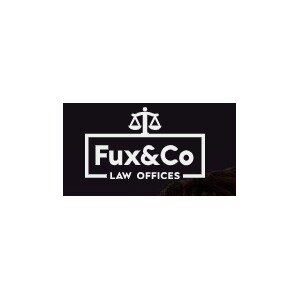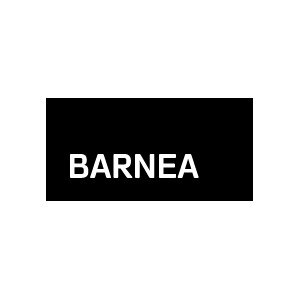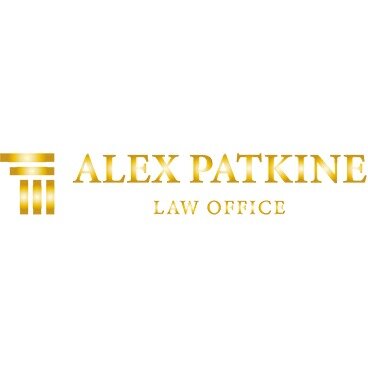Best Commercial Real Estate Lawyers in Tel Aviv
Share your needs with us, get contacted by law firms.
Free. Takes 2 min.
Free Guide to Hiring a Real Estate Lawyer
List of the best lawyers in Tel Aviv, Israel
About Commercial Real Estate Law in Tel Aviv, Israel
Commercial Real Estate in Tel Aviv, Israel, is a dynamic and booming field. As Israel's financial and technological hub, Tel Aviv offers a range of lucrative opportunities for commercial real estate investments. These can include office buildings, retail spaces, industrial properties, and more. The city’s real estate market is highly competitive and regulated, requiring expertise in navigating local laws and regulations.
Why You May Need a Lawyer
Engaging in commercial real estate transactions often involves considerable complexity. Common scenarios where you may require legal assistance include:
- Purchasing or selling commercial property
- Negotiating leases or rental agreements
- Resolving property disputes or litigation
- Understanding zoning laws and development regulations
- Ensuring compliance with local building codes and safety standards
- Performing due diligence and title searches
- Structuring and financing real estate deals
Legal expertise can help mitigate risks and ensure that your interests are well protected throughout these processes.
Local Laws Overview
Several key aspects of local laws are particularly relevant to commercial real estate in Tel Aviv:
- Land Law: Governs ownership, transfer, and use of land and property.
- Planning and Building Law: Dictates zoning, land use, and building regulations, managed by the local planning committee.
- Lease Law: Outlines the rights and duties of landlords and tenants, including rental terms and conditions.
- Real Estate Taxation: Encompasses municipal taxes (Arnona), purchase taxes, improvement levies, and capital gains taxes.
- Contract Law: Critical for drafting, negotiating, and enforcing real estate contracts and agreements.
Understanding these laws is essential for any commercial real estate transaction in Tel Aviv.
Frequently Asked Questions
What is the first step in buying commercial property in Tel Aviv?
The first step is to conduct thorough due diligence, which includes identifying a suitable property, verifying ownership, checking zoning regulations, and assessing financial viability. Consulting a real estate lawyer early in the process is advisable.
Are there any specific taxes for commercial property transactions?
Yes, there are several taxes, including purchase tax, capital gains tax, and sometimes a betterment levy if property value increases due to zoning changes or improvements.
How can I check if a property is zoned for commercial use?
You can check the zoning status by referring to the Master Plan (TABA) at the local municipality’s Planning and Building Department. A lawyer can assist with interpreting these documents.
What is Arnona, and how is it calculated?
Arnona is a municipal property tax levied on owners or tenants of property in Tel Aviv. It is calculated based on the size and usage of the property, as well as the property's location within the city.
What are the essential clauses in a commercial lease agreement?
Key clauses include lease duration, rent amount, renewal options, maintenance responsibilities, use of premises, and provisions for breach of contract. A lawyer can help ensure the lease terms are fair and legally sound.
Can I change the use of a commercial property?
Changing the use of a commercial property may require an applicative process to amend zoning permissions. This will involve approval from the local Planning and Building Committee and possibly a public hearing.
Is it necessary to conduct a title search?
Yes, a title search is crucial to verify ownership, check for liens, encumbrances, or legal issues that might affect the property. A lawyer typically handles this process to ascertain clear title.
What legal protections exist for commercial tenants?
Protections include rights to a habitable space, fair lease terms, and legal avenues for resolving disputes. The Lease Law provides some statutory protections but often the specifics depend on the lease agreement.
How long does a typical commercial real estate transaction take?
The duration varies based on the complexity of the deal but typically ranges from a few weeks to several months. Factors influencing the timeline include negotiations, due diligence, and compliance with legal requirements.
What should I do if I have a dispute with my landlord or tenant?
First, review your lease agreement to understand your rights and obligations. Attempt to resolve the issue amicably. If this fails, seek legal advice to explore formal dispute resolution or litigation options.
Additional Resources
Several resources and organizations can provide valuable information and assistance:
- Tel Aviv-Jaffa Municipality: Offers information on zoning, taxes, and building permits.
- Israel Land Authority: Manages public land transactions.
- Israel Bar Association: Provides a directory of qualified real estate lawyers.
- Ministry of Construction and Housing: Oversees national housing and building policies.
- Tax Authority: Information on real estate taxes and levies.
Next Steps
If you need legal assistance in commercial real estate, here are steps to follow:
- Identify your specific legal needs and the type of property involved.
- Research and choose a qualified real estate lawyer with experience in Tel Aviv.
- Schedule a consultation to discuss your case, ask questions, and understand their approach.
- Ensure clear communication and stay involved in the process to protect your interests.
Taking these steps will help you navigate the complexities of commercial real estate transactions and ensure a smooth and successful outcome.
Lawzana helps you find the best lawyers and law firms in Tel Aviv through a curated and pre-screened list of qualified legal professionals. Our platform offers rankings and detailed profiles of attorneys and law firms, allowing you to compare based on practice areas, including Commercial Real Estate, experience, and client feedback.
Each profile includes a description of the firm's areas of practice, client reviews, team members and partners, year of establishment, spoken languages, office locations, contact information, social media presence, and any published articles or resources. Most firms on our platform speak English and are experienced in both local and international legal matters.
Get a quote from top-rated law firms in Tel Aviv, Israel — quickly, securely, and without unnecessary hassle.
Disclaimer:
The information provided on this page is for general informational purposes only and does not constitute legal advice. While we strive to ensure the accuracy and relevance of the content, legal information may change over time, and interpretations of the law can vary. You should always consult with a qualified legal professional for advice specific to your situation.
We disclaim all liability for actions taken or not taken based on the content of this page. If you believe any information is incorrect or outdated, please contact us, and we will review and update it where appropriate.

















